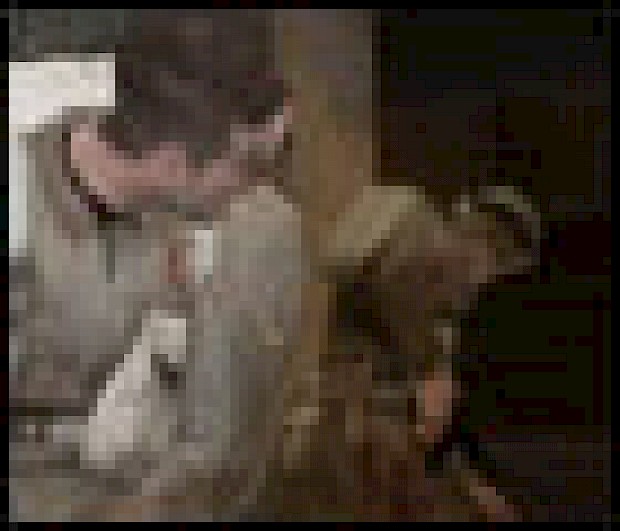Feature: War Games

Posted 23 Sep 2006 at 14:21 by guest

| "War games are fundamentally empty, ranging from the banal to the offensive." |
Tanks rumble, bombs detonate and bullets crack. And then you pick up a health pack and you are back up to 100% health. Why do we play games based on wars? What can they possibly tell us?
Fog of War
Perhaps it is just my unfortunate choice in war games that makes me biased against them. Or perhaps it is just an aversion that I have to pulling the trigger, even against computer-generated enemies. As early as I can remember my parents were against my brother and I playing games that revolved around guns and shooting. It was a clear moral line: and it taught us that violence against others was wrong.
Of course, where to draw the line? GoldenEye is one of my favourite games of all time, and has the player as James Bond, gunning down scores of crack Russian troops. Does this make me a hypocrite? No: because the world of 007 is comic book fantasy � it is not based on reality. Tearing through aliens in Metroid is science fiction; so is anything involving robots, monsters or mutants. That changes when you are playing a game based on a real conflict. Those events are real. But in the end: what's the point of war games?
Frontline
Playing Medal of Honor: Frontline � with its gratuitous recreation of Saving Private Ryan's gratuitous recreation of the Normandy landings � is possibly one of the most depressing gaming experiences I've had. Not because it conveys the horror of war (it doesn't). But rather it reveals that no video game is up to the challenge of depicting war accurately. War games are fundamentally empty, ranging from the banal to the offensive. Even more depressing is official military recruitment tool America's Army, an exercise in propaganda that presents the technical aspects of war but not the trauma. Or consider 2001's dismal Return to Castle Wolfenstein: a hybrid of Where Eagles Dare without the thrills, and Raiders of the Lost Ark without the laughs. (The Wolfenstein sequel was also technically lazy, amounting to a tepid level-by-level remake of GoldenEye � Dam? Check. Runway? Check. Secret weapons facility? Check. Surface? Check, etc.) The conflicts portrayed in these titles are just backdrops � from Omaha beach to the jungle of Vietnam, the settings change but the games are the same.
Cannon Fodder
One of the most (in)famous controversies in computer gaming is centred on Cannon Fodder, Sensible Software's early '90s war games featuring the tagline "War has never been so much fun." The game was cartoon in style and satirical in tone, with gratuitous violence that offended some. But the real offence was the game's use of the Remembrance Day poppy, which led to objections from the Royal British Legion and forced the publisher to remove the poppy from the box. Some criticised that move: noting that the very freedoms the Greatest Generation fought for were trampled on through the demand to censor Cannon Fodder. Two points � one is that the use of the poppy was, frankly, crass (and also completely jarring in tone: being deadly serious as opposed to the satirical nature of the rest of the game). And more importantly: those that struggled to secure the world's freedom did not do so just to let tasteless gamers insult their memory.
All Quiet
In the end, my issue is that I believe war games to be inappropriate and offensive. The best that can be hoped for is that computer games can reveal the loss and devastation wrought by war. Does Medal of Honor or Full Spectrum Warrior tell us anything; are they anti-war in any respect? The fact of the matter is today's war games are hardly All Quiet on the Western Front. They appeal only to the anorak: the kind of guy who builds model tanks and planes in his parents' garage; who knows everything about the engines of war and nothing about the human cost.
As is true for many of us, both sets of my grandparents played their part in the Second World War. They fought, and sacrificed; they both lost and won. How can I play a facile video game based on that conflict � or Korea, Vietnam or Iraq � and consider that appropriate? The bottom line is when you are playing these games, the men you cause to be killed were real people.
The problem is that video games are not yet at a point where they can tell us anything about the nature of war, or how war impacts on people. Right now we see technically detailed, near photorealistic recreations of battlefields and specific events: and while the graphics change, war games are just like any other shooters. In fairness, there are games that do convey the tension well. But the carnage and waste of war cannot be understood through lines of code.
Nick Bennett
[email protected]






















